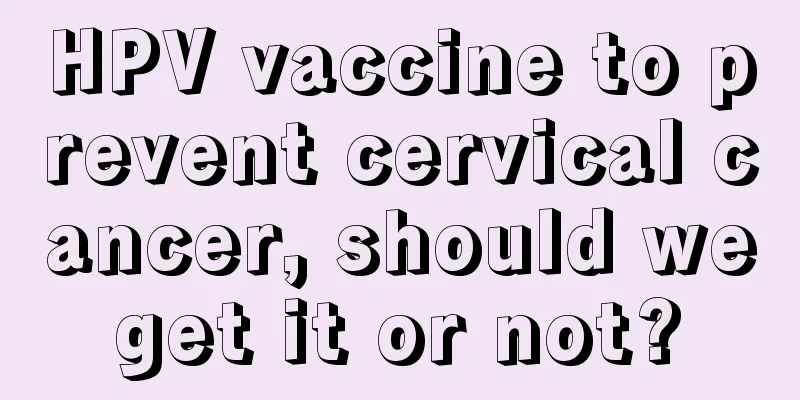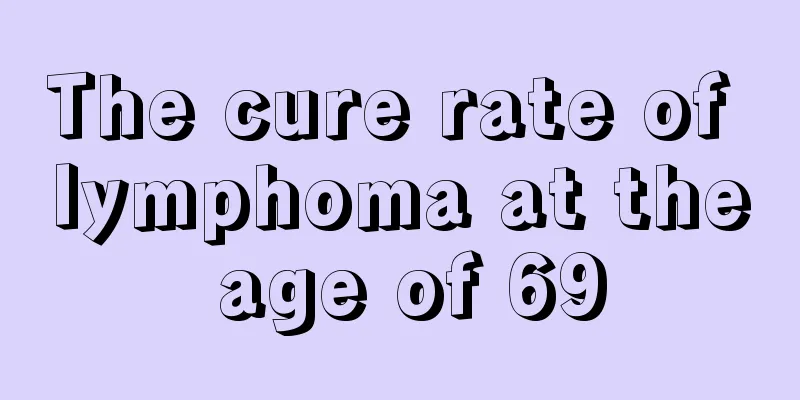HPV vaccine to prevent cervical cancer, should we get it or not?

|
Cervical cancer is the second most common malignant tumor in women and is known as the "beauty killer". However, it is also one of the tumors with the most clear etiology so far. About 99% of cervical cancers are related to high-risk human papillomavirus infection. To prevent HPV (human papillomavirus) infection, we must talk about the HPV vaccine, which has been very popular in recent years. There are three types of vaccines currently on the market: bivalent, quadrivalent, and nine-valent vaccines. The difference between them lies in the age at which they can be vaccinated and the type of HPV they protect against. Is the nine-valent vaccine definitely better than the two-valent or four-valent vaccine? Not necessarily. According to different studies at home and abroad, whether it is a two-valent, four-valent or nine-valent vaccine, it has a strong protective effect. And there is evidence that the earlier the HPV vaccine is administered, the better the prevention effect. Therefore, there is no need to wait for the nine-valent vaccine, or even miss the best time to get the vaccine, for the prevention of cervical cancer. The two-valent vaccine is "a timely help", the four-valent vaccine is "icing on the cake", and the nine-valent vaccine is "going to the next level". You can choose the appropriate vaccine type according to your own situation. Are imported vaccines better than domestic vaccines? In fact, the two have comparable preventive effects. The domestically produced bivalent vaccines currently on the market are half the price of imported bivalent vaccines. They are truly good value for money. However, it is not recommended for pregnant women and breastfeeding women to receive the cervical cancer vaccine at present. However, if you become pregnant unexpectedly within 6 months of vaccination, don't worry too much. Because the vaccine has not been found to have adverse effects on the fetus, just suspend vaccination and have regular prenatal checkups. Continue to receive the remaining doses after the breastfeeding period. Side effects after HPV vaccination are rare, and most side effects are mild, such as redness, swelling, and pain at the injection site. A very small number of people may experience more serious side effects, such as muscle weakness and paralysis. However, like other vaccines, the benefits outweigh the risks. Please note that no matter which HPV vaccine you take, it is not a permanent solution. Regular screening is still required. Generally speaking, women who have sex should be screened every 3-5 years. It can be combined with cervical liquid-based cytology screening to have a higher detection rate for cervical diseases. |
>>: Dietary fiber can prevent colon cancer. What can you eat to prevent colon cancer?
Recommend
Can kelp prevent breast cancer? Eating more of these five types of food can prevent breast cancer
Among many female diseases, breast cancer has the...
4 tips to help you get rid of lumbar bone hyperplasia
I believe everyone has heard of bone hyperplasia....
What are the dangers of eating coix seed all year round
For women, coix seed is a very useful food. Becau...
How is haze formed?
The so-called haze can be said to be a term we ar...
What is the reason for sallow skin
Everyone wants to have fair and smooth skin. No m...
Only by choosing the right method can we treat melanoma patients
Recently, more and more people in my country are ...
What are the common symptoms of liver disease?
I believe that most people know about the small t...
Preventing skin allergies in autumn - six practical tips
1: Moisturizing is the most important issue 2: Be...
Why is my nose itchy?
An itchy nose is a common symptom of rhinitis, wh...
Rash on both sides of the neck
If you find that you suddenly have rashes on both...
How to remove the odor of bedwetting without washing?
In life, everyone says that children are angels, ...
Anti-PCNA antibody
A positive anti-proliferating cell nuclear antige...
What is the best way to treat ovarian tumors
Ovarian tumor is a gynecological disease that end...
Should I wear underwear when sleeping
Don't wear underwear when sleeping, otherwise...
What are the methods to remove the black corners of the mouth
In this society where looks matter, appearance is...









